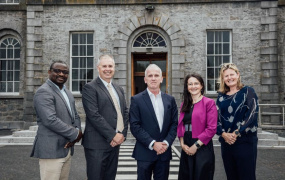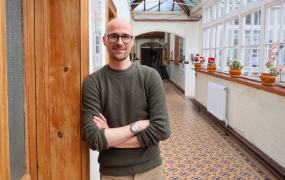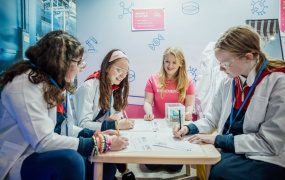Academic Integrity
About
Mary Immaculate College is committed to promoting Academic Integrity and enshrining it in the work of all of those who study at MIC.
Mary Immaculate College actively promotes and participates in the annual National Academic Integrity Week which takes place early in the first semester of each academic year.
National Academic Integrity Week 2023
National Academic Integrity Week 2023 took place at the start of the academic year in October under the theme The Learner Perspective. The week had a programme of events both within MIC and nationally.
Expand the days listed below to view further details of the events that took place.
12:15 to 12:30 - Opening: National Academic Integrity Week 2023
Online - Hosted by the National Academic Integrity Network (NAIN).
- Billy Kelly,
Chair of the National Academic Integrity Network (NAIN).
12:30 to 13:30 - Opening Student Panel
Online - Hosted by the National Academic Integrity Network (NAIN).
Title: Academic Integrity: The Learner Perspective
Panel members included:
- Eoin Crossen,
Vice President for Academic Life, DCU SU. - Oisin Gahan,
Vice President Education, MTU Cork SU. - Clodagh McGivern,
Postgraduate student, UCD. - Bryan O’Mahony,
Academic Affairs Officer, USI.
Moderator:
- Elva Casey,
NAIN member and Hibernia College.
The panel, which reflected a range of disciplines and HE institutions, discussed academic integrity, including assessment, GenAI, and the challenges faced by students in the contemporary higher education environment.
12:30 to 13:30 - UK Universities' policy responses to Artificial Intelligence (AI) related academic misconduct
Online - Hosted by the National Academic Integrity Network (NAIN).
Presenter:
- Stephanus Lim,
Imperial College, London.
Moderator:
- Aisling Reast,
NAIN Steering Committee and RCSI.
Stephanas is a student in his 4th year studying Chemistry at Imperial College London. As part of the Academic Integrity in STEMM i-Explore module, he and his group conducted research into the readiness of UK universities towards AI-related academic misconduct which won the Group Research Prize at the recent 2023 Imperial College London Academic Integrity in STEMM student research conference. His findings were also presented at the 9th European Conference on Ethics and Integrity in Academia in July 2023. Within his College, he has spoken on a panel at this year’s Imperial College Festival of Learning and Teaching where he focused on the student perspective towards digital technologies on assessment and feedback.
08.00 to 23.00 - International Day of Action for Academic Integrity
Online - hosted by the International Center for Academic Integrity (ICAI).
Coordinated by:
- Dr Mary Davis,
Oxford Brookes University, UK. - Rachel Gorjup,
University of Toronto, Mississauga, Canada.
The day comprised a wide range of sessions across a range of topics.
In association with the International Center for Academic Integrity, Albany, NY, USA.
10:00 to 12:00 - Authenticity in Assessment: Building Bridges to Student Engagement and Success
Online - Hosted by MIC.
Presenters:
- Dr Sally Brown, NTF, PFHEA, SFSEDA
Emerita professor at Leeds Beckett University. - Dr Kay Sambell, PFHEA
Visiting Professor at the Institute of Education, Cumbria University.
Building on our sector-wide experiences as well as our engagement with the burgeoning authentic assessment literature (Villaroel et al, 2018; MacArthur, 2022) the presenters argued that there are a wide range of pragmatic strategies and creative approaches towards designing more authenticity into assessment practices, without necessarily abandoning everything we have used to date.
10:30 to 11:30 - Academic integrity is for everyone: strategies to include all students and staff in promoting and supporting academic integrity
Online - Hosted by the National Academic Integrity Network (NAIN).
Presenter:
- Dr Mary Davis,
Academic Integrity Lead, Oxford Brookes University and ICAI Board member.
Moderator:
- Grainne Mooney,
NAIN Steering Committee and QQI.
This keynote is focused on encouraging everyone, staff and students, to participate in promoting and supporting academic integrity. The presenter argued that it is crucial to achieve greater inclusion in academic policies, procedures, teaching and practice of academic integrity in order to support student development and outcomes, staff experience and institutional reputations. Drawing on her research into inclusion (Davis, 2022), the presenter discussed how Universal Design for Learning (UDL) principles can be applied to academic integrity policies and teaching to facilitate student understanding and maintain a positive focus on education, rather than punishment. The presenter also discussed teaching resources and a Student Academic Integrity Champion model designed to help institutions engage students in promoting academic integrity, developed as part of a QAA-funded collaborative project to improve inclusion. Finally, the presenter reviewed her recent work incorporating UDL guidelines in the development of a course to help students navigate AI.
13:00 to 14:00 - Authentic Assessment and Meaning-Making in Teacher Education: Insights from Practice in Music Education
Online - Hosted by MIC.
Presenters:
- Dr Gwen Moore,
Mary Immaculate College. - Dr Maria Varvarigou,
Mary Immaculate College.
This session focused on sharing insights from authentic assessment design and innovative approaches to real-world practices in group music-making and learning, arguing that discipline-specific learning and assessment strategies are critical to meaning-making processes for learners in their development as musicians and as student teachers and incorporating strategies for the collaborative design and implementation of authentic assessment within music education modules that promote innovative approaches underpinning principles of assessment as learning (O’Neill, 2017).
12:30 to 13:30 - What more could HEIs do to help students avoid engaging in academic misconduct?
Online - Hosted by the National Academic Integrity Network (NAIN).
Presenter:
- Billy Kelly,
Chair – National Academic Integrity Network.
Moderator:
- Bryan O’Mahony,
NAIN Steering Committee and Union of Students of Ireland (USI).
In 2023, a new optional topical module – Academic Integrity – was added to the annual Irish Student Survey (studentsurvey.ie - a national survey of student engagement), developed in collaboration with the National Academic Integrity Network. During February and March 2023, students from seven higher education institutions (HEIs) completed this module on Academic Integrity. Respondents were first and final year undergraduate students and taught postgraduate students. That module sought scaled answers to 15 closed-ended questions and a final open-ended question, "In your view, what more could institutions do to help students avoid engaging in academic misconduct?"
This webinar presented a content analysis of over 3,500 answers to that open-ended question. It offered insights into student perceptions of the effectiveness of current institutional policies and processes related to academic misconduct gained from these responses and flagged potential amendments or innovations to current procedures recommended by students that HEIs might adopt.
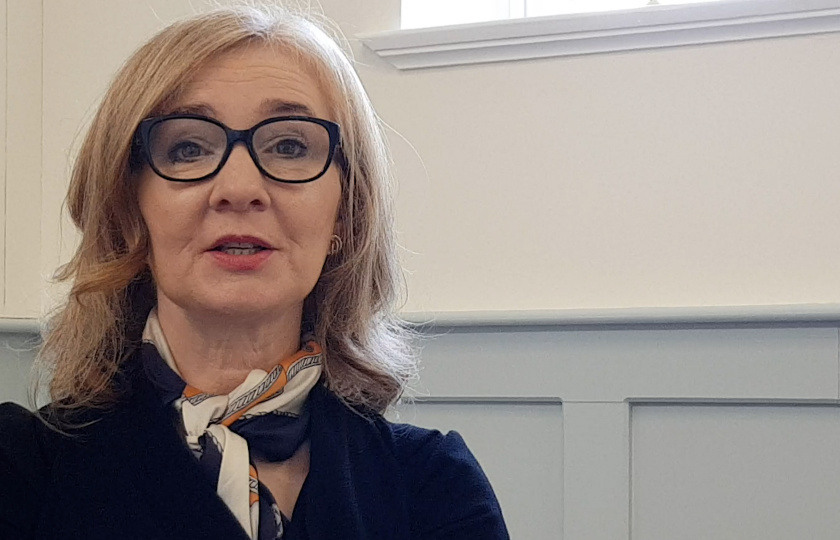
What is Academic Integrity?
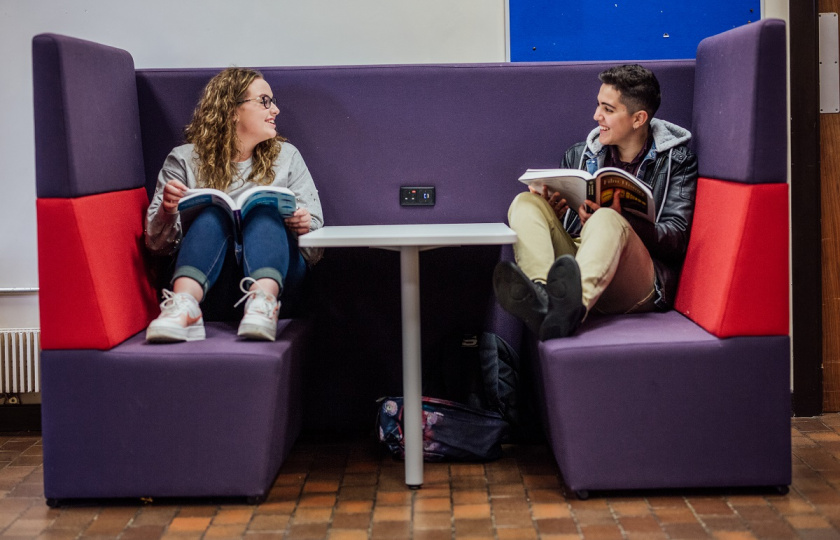
Academic Integrity refers to honesty and responsibility in your studies at MIC. It values ethical academic behaviour and the avoidance of plagiarism, cheating, fraudulent representation of academic work and other dishonesty in academic endeavours.
This includes:
- Falsely representing the work of others as one's own in an assignment
- Copying of ideas or work of a fellow student
- Copying from published works, in assignments, without proper acknowledgment (i.e. plagiarism)
- Using co-authoring assistance in individual academic work, including the commission or purchasing of essay writing services, i.e. syndication
- Using technical assistance in assignments where it has not been authorised, e.g. using translation software in a translation assignment
- Signing attendance records on behalf of a classmate
- Fabricating results or research findings in an assignment
- Using false information to gain extensions to deadlines or i-grades
- Cheating in examinations
- Misrepresenting achievements on application form
Key Values
There are five key main values of Academic Integrity:
1. Honesty
Honesty is an indispensable foundation of teaching, learning, research, and service. As you embark on a practice of lifelong learning it is essential that you remain truthful about which ideas are your own, which are derived from others research and the methods you use to find, use and present
information. Cultivating a practice of honesty in your research is a foundation stone of your academic integrity.
2. Trust
Trust is another necessary foundation of academic work. When developing your information literacy skills, you need to trust the research and as you gain confidence to do your own research, you need to show you can be trusted too. Trust enables you to collaborate, to share information, and to circulate your ideas and words, without fear that your work will be stolen, compromised or diminished. Trust is essential so that those outside academic communities can believe in the value and meaning of scholarly research, teaching, and degrees.
3. Fairness
Fair treatment is an essential factor in the establishment of ethical communities. You show fairness to each other and to the community when you do your own work honestly, to authors when you acknowledge borrowed work appropriately, to administrators when they respect and uphold academic integrity policies, and to alumni when they maintain the good reputation of the institution.
4. Respect
Respect in academic communities is reciprocal and requires showing respect for oneself as well as others. Respect for your self means facing challenges with integrity. It also means valuing and taking advantage of opportunities to gain new knowledge, by taking an active role in your own education, contributing to discussions as well as listening to others’ points of view, and performing to the best of your ability. Lifelong learning means cultivating respect for your own and other peoples work.
5. Responsibility
Academic Integrity also means being responsible in holding yourself accountable for your own actions and discouraging misconduct by others. It also means learning to recognize and resist the impulse to engage in unscrupulous behaviour. Being a responsible member of an academic community also means holding others accountable. It can be challenging to hold yourself or others accountable but learning skills and taking responsibility for your work is an essential part of being in an academic community.
What is Plagiarism?
Plagiarism is defined as the use of either published or unpublished writing, ideas or works without proper acknowledgement. Put simply, if you read a relevant point in a book or elsewhere, you may want to use it in your essay. This is normal practice. However, beware that if you reproduce a point from a book without referencing it (i.e. saying where it came from), you are breaking rules. To use someone else’s ideas in this way is seen as intellectual theft, and it is more commonly referred to as plagiarism.
Plagiarism is a form of academic dishonesty where, either intentionally or unintentionally, ideas or works are falsely presented as being those of the author for her/his benefit. It can include:
- The use of copying a part of a text without quotation marks and citation.
- The use of a part of a text, with minor paraphrase, without citation.
- The use of an image without citation or permission.
- The use of music without citation or permission.
- The use of computer code, mathematical work, research results, spreadsheets without citation or permission.
- The re-use of one’s own work from a previous assignment without citation (self plagiarism)
Where can I get help with citing and referencing?
The Academic Learning Centre at MIC is a great point of contact for all matters relating to academic practice, including citing and referencing.
The friendly staff at the ALC are always happy to assist you and can be contacted at ALC@mic.ul.ie.
Useful Links
Resources
- Academic Learning Centre:
- Academic Integrity LibGuide
- Academic Integrity Policy
- Access & Disability Office
- Mary Immaculate College Student’s Union
- MISU Academic Writing Resources
- MIC Libraries | Mary Immaculate College
- MIC's guide to designing online/blended assessments
- Resource shared by the DCU Teaching Enhancement Unit's on assessment design and academic integrity
- Study Skills Handbook
- National Academic Integrity Guidelines
Library Resources
National Academic Integrity Week 2023 programme of events.
Videos
Recorded sessions from Academic Integrity Week 2022 will be made available here
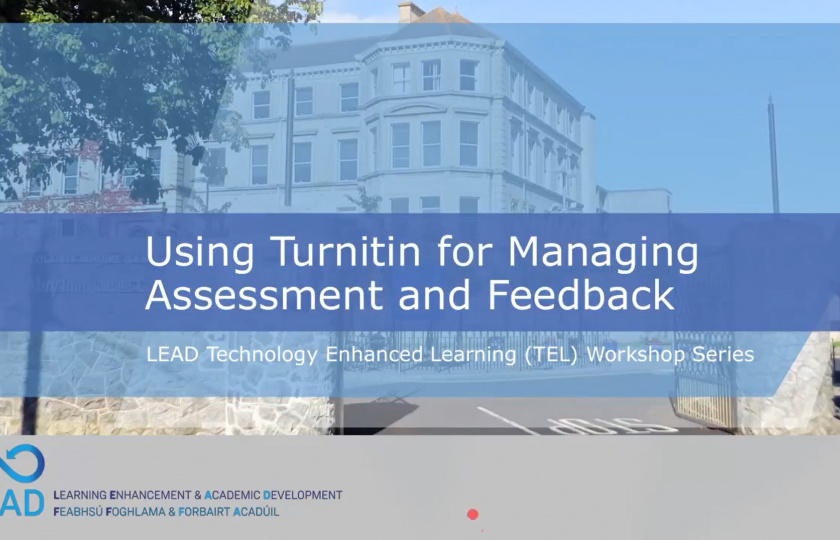
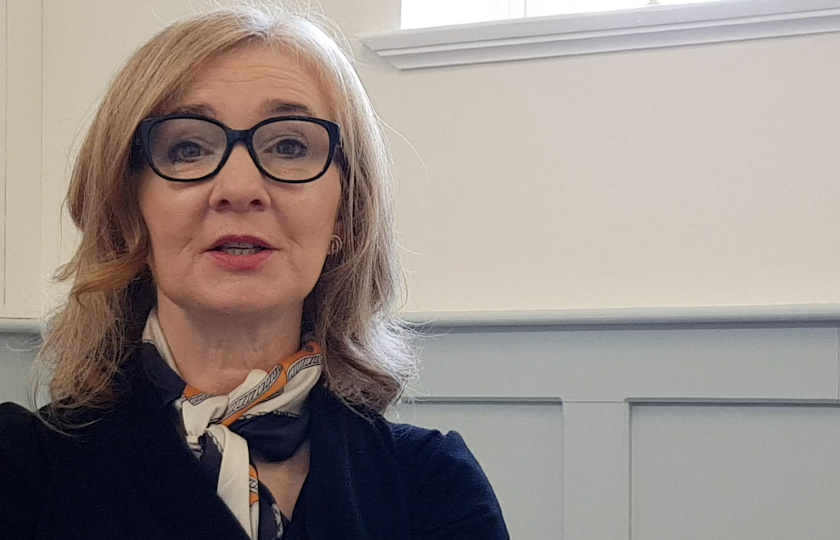
- About
- What is Academic Integrity?
- Useful Links
- Videos




